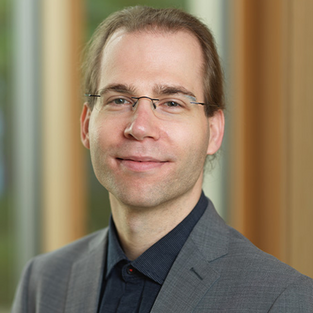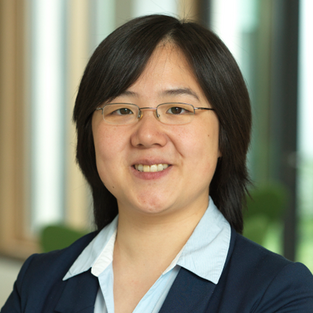Add-on Fellowships for Interdisciplinary Life Science
Note:
The 'Add-on Fellowships for Interdisciplinary Life Science' is now the 'Add-on Fellowship for Interdisciplinary Science and Transfer'.
Funding
Who is the funding aimed at?
The funding is aimed at PhD students and postdocs working on interdisciplinary research questions at the interfaces between life sciences and physics, computer science, mathematics, engineering and related research fields. For example, biologists can immerse themselves in mathematics and modelers in the life sciences.
What does the promotion look like?
With the Add-on Fellowship, postdocs and doctoral students receive financial support of up to 12,500 euros over a period of two years. In addition, we support the work-life balance of fellows with children with up to 3,000 euros. The funding can be used flexibly and individually.
For example, for:
- Participation in research stays, conference visits, further training or events.
- Acquisition of special tools (e.g. hardware or software)
- Data acquisition or collection
- Science communication activities
- Participation in fellowship meetings
Application
Requirements
PhD students and postdocs who are employed at a university or non-profit research institution in Germany or whose research is otherwise funded there (e.g. via a full scholarship) are eligible to apply.
Downloads:
Application documents
All documents must be submitted online:
- Completed application form
- Letter of motivation (max. 2,400 characters incl. spaces)
- Curriculum vitae
- Short description of the research project (max. 3,200 characters incl. spaces)
- Statement of the group leader/supervisor on the need for the scholarship and on the support of interdisciplinary continuing education
- Proof of academic achievement (copies of degree certificate / transcript of records and possibly doctoral certificate)
The application phase for the Add-on Fellowships for Interdisciplinary Life Science has ended.
Contact


Who we promote
This movie is hosted on YouTube. The video will only be active after clicking the button. Please note that this results in the transmission of data to the USA with an insecure level of data protection.
Barbara Huber, Max Planck Institute for Geoanthropology
Barbara Huber is one of our Add-on Fellows. At the Max Planck Institute, she is investigating how people used plants in the past. To do this, she extracts aromas from archaeological finds.
Jury 2024
- Rudi Balling (Bonn)
- Katharina Baum* (Potsdam)
- Jan Baumbach (Hamburg)
- Marcel Bermudez* (Münster)
- Stefan Borgwardt (Lübeck)
- Susanne Brakmann (Dortmund)
- Anna-Marie Finger* (San Francisco/Kopenhagen)
- Martin Fischer* (Jena)
- Dhana Friedrich* (Wuppertal)
- Stephan Grill (Dresden)
- Hanspeter Herzel (Berlin)
- Linnea Hesse* (Hamburg)
- Michael Heymann* (Stuttgart)
- Arjen Jakobi* (Delft)
- Lars Kaderali (Greifswald)
- Andreas Kist* (Nürnberg)
- Edda Klipp (Berlin)
- Xenia Kobeleva* (Bochum)
- Andreas Kremling (München)
- Nico Lachmann* (Hannover)
- Alexander Löwer (Darmstadt)
- Kay Katja Nieselt (Tübingen)
- Matthias Rarey (Hamburg)
- Fred Schaper (Magdeburg)
- Constanze Schmidt (Heidelberg)
- Carolin V. Schneider (Aachen)
- Andreas Schuppert (Aachen)
- Petra Schwille (Martinsried)
- Oskar Staufer* (Saarbrücken)
- Tatjana Tchumatchenko (Bonn)
- Jens Timmer (Freiburg)
- Matthias Wilmanns (Hamburg)
- Marietta Zille* (Wien)
*Alumni of the Add-on Fellowships for Interdisciplinary Life Science.